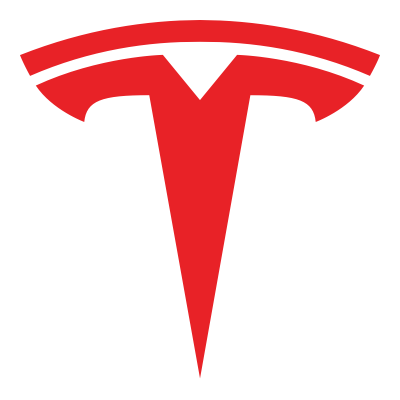

Electric Cars in Malaysia
Environmentally friendly
Low noise
No fuel required
Popular EV Cars
Taiwan’s Hon Hai Precision Industry Co., better known as Foxconn, is in talks with Renault to purchase the latter’s controlling stake in Nissan, reports Taiwan’s Central News Agency (CNA). Renault owns 35.7% of Nissan; 17% is owned directly by Renault, while the remaining 18.7% is held via a French trust. According to CNA, Foxconn had initially approached Nissan directly but was rebuffed, prompting the Japanese automaker to accelerate talks with Honda. Separately, Japan’s business publication Di
China’s Ministry of Industry and Information Technology (MIIT) recently released information on the facelift of the 2025 Xpeng G6 in its latest publicly available catalogue. Three variants were mentioned in the document, all powered by a single rear-mounted (RWD) motor with a peak output of 296 PS. That output remains unchanged from the outgoing pre-facelift but the documents also listed new battery packs would be offered in the facelift. Replacing the existing ternary lithium battery packs woul
The Chery Omoda E5 is the first battery EV (BEV) model in Malaysia to receive SIRIM certification for the safety of its high-voltage battery. This is in addition to complying with the international United Nations Regulation No. 100 (UNECE R100) requirements for safety standards of high-voltage batteries in four-wheeler vehicles. “Being the first automotive brand in Malaysia to receive the EV battery certification is an incredible honor and a significant milestone for us at Chery Malaysia. We are
Industry analysts love to harp on the virtues of battery electric vehicles (BEVs) and predicted that they would conquer the automotive market. That results in legislation proposing goals that are highly favourable towards BEVs, with mixed results from both new and established brands. Still, the accelerated growth of the BEV industry is not going to completely wipe out internal combustion engines (ICE) so soon. As BEV sales began to slow, carmakers which once pledged to have a fully or mostly ele
Popular Vote
ICE vs Electric Vehicles
ICE is the best
EV is the future
Both
- I think the word 'car enthusiast' define me better than 'petrolhead.' I am thrilled to see where the EV revolution will bring us in the future...
- I am pretty sure that my next daily car will be an EV, even though I still love the sound of good ICE... there's no Planet B, we have to look after our planet as best as we can...
Popular Questions
What are the advantages and disadvantages of BEVs?
- I think maintenance is simpler due to fewer moving parts
- Charging a BEV can take longer compared to refueling a hybrid or pure combustion engine car
EV Technology
With the conclusion of the 2024 Kuala Lumpur International Mobility Show (KLIMS) yesterday, here's a quick recap of what went on at one of the biggest stands that week - the one by UMW Toyota Motor. Multi-pathway approach to mobility With no less than 10 cars and a few other two-wheeled exhibits – Toyota's stand highlighted the company's multi-pathway approach to tackling the world's questions on the evolution of mobility. Rather uniquely however is that their stand showcased not just an optimis
Sanjay
12.12.2024
At the ongoing Kuala Lumpur International Mobility Show (KLIMS 2024), the Toyota Kayoibako is displayed, embodying the brand’s vision for a versatile, dual-purpose BEV future. With a boxy look that's reminiscent of the Toyota LiteAce that won the hearts of Malaysians in the ’80s and ’90s, an Kayoibako strikes a balance between nostalgia and what's to come in the future. Looks that deceive The Kayoibako measures 3,990 mm in length, 1,790 mm in width, and 1,855 mm in height—dimensions that make it
Sanjay
04.12.2024
Honda Motor Co., Ltd. has launched a demonstration production line for all-solid-state batteries, marking a pivotal step toward mass production. Built at Honda R&D Co., Ltd. (Sakura) in Sakura City, Tochigi Prefecture, Japan, the facility will refine manufacturing processes and finalize battery cell specifications ahead of introducing the technology in electrified models in the latter half of the 2020s. The facility spans 27,400 m² (295,000 ft²) and replicates key production steps, including ele
Sanjay
22.11.2024
With the potential removal of petrol subsidies on the horizon, many Malaysians are rethinking their vehicle choices. Battery-electric vehicles (BEVs) present an increasingly attractive option, not just for environmental reasons but for their potential financial savings. Here's how driving electric in Malaysia can help you keep more money in your pocket, even when electricity rates are high. Electricity costs vs petrol prices Currently, RON 95 petrol is capped at RM 2.05 per litre. However, with
Shaun
25.10.2024
As of 30-September 2024, over 3,171 charging stations have been installed nationwide, including 813 DC fast chargers, according to Investment, Trade and Industry Minister Tengku Zafrul Aziz, speaking at the launch of the Leapmotor C10 yesterday. He expressed confidence that Malaysia is on track to meet its target of 10,000 charging stations by the end of 2025. The rise in charging infrastructure accompanies strong growth in the battery electric vehicle (BEV) market. In the first half of 2024 (H1
Sanjay
17.10.2024
We’ve all heard it before: “Battery-electric vehicles (BEVs) might be great for some countries, but can they handle Malaysia’s tropical climate?” With scorching temperatures, high humidity, and unpredictable rainy spells, it’s a fair concern. But with the rise of BEVs in our market, like the Neta models available through CARSOME, it’s time we bust some myths and see how they truly perform in our weather. Let’s start with the big question: Can BEVs survive our relentless heat and humidity? The an
Shaun
14.10.2024
EV Car User Review
2019 Nissan X-Trail 2.0 2WD Hybrid
2018 Volvo XC90 T8 Twin Engine Inscription Plus
2020 Volvo S60 T8 PHEV R-Design
2024 Honda City Hatchback RS e:HEV
2022 Honda HR-V RS e:HEV
EV Car FAQs
What are the types of EVs?
There are two main types of electric vehicles (EVs): Battery Electric Vehicles (BEVs), Hybrid Electric Vehicles (HEVs), and Fuel Cell Electric Vehicles (FCEVs). BEVs run solely on electric power stored in batteries, while HEVs have a petrol or diesel engine alongside a small battery, while FCEVs use hydrogen.Which type of EVs are available in Malaysia?
We have BEVs and HEVs sold in large numbers here. FCEV cars are only in the testing stages.What are the advantages and disadvantages of EVs?
Advantages of EVs:- - Environmentally friendly: EVs produce zero exhaust emissions, reducing air pollution and greenhouse gases
- - Lower operating costs: Maintenance is simpler due to fewer moving parts
- - Quiet and smooth: EVs are quieter and provide smooth acceleration due to their electric motors Disadvantages of EVs:
- - Limited range: Some EVs have a limited driving range compared to traditional combustion-engine cars
- - Charging infrastructure: The availability of charging stations can be limited, plus not all high-rise residences allow for charging within
- - Charging time: Charging an EV can take longer compared to refueling a combustion-engine car
What are the incentives for buying EVs in Malaysia?
Fully-imported (CBU) EVs are tax-free in Malaysia until 31-December 2025. There are also tax exemptions for locally-assembled (CKD) EVs until 31-December 2027. Road tax is also free for EVs until 31-December 2025.Is it appropriate to buy EVs in Malaysia? What do I need to pay attention to?
It is appropriate to buy EVs in Malaysia now, as the charging situation has improved, and the government is also currently incentivising the growth of EVs here. More chargers are being added, and manufacturers are introducing new models to make the selection increasingly diverse. Pay attention to incentives from the government, as well as the offers that carmakers might introduce in order to better entice youWhat are the well-known brands of EVs recommended?
GWM Ora, BYD, Mercedes-Benz EQ, Smart, Tesla, Kia, Hyundai, and BMW are just a few of the bigger players here.What are the tips for using EVs?
Consider installing a home charging station for convenience. While out and about, install apps that will tell you where chargers are, as well as their types and associated costs, to plan your trips better. While driving, use regenerative braking and smooth acceleration to maximise range. To care for your battery, avoid frequently draining the battery and charging to max to extend its life.What is the range of an electric vehicle worth buying?
Right now, a budget of RM 200k is the sweet spot to consider: there is the Tesla Model Y, BYD Atto 3, Hyundai Kona Electric, Hyundai Ioniq 5, and Ora Good Cat in this price range.Should I buy an EV or an ICE car?
Choosing between an EV and an ICE car depends on factors like your driving habits, charging access, budget, and environmental considerations.Are EVs durable?
EVs are designed to be just as durable as ICE cars. While battery lifespan remains one of the key concerns, advancements in battery technology, in addition to the owners’ own care are also important in improving longevity.
EV Range Ranking
- Mercedes-Benz EQS
770KM~782KM
- Tesla Model S
715KM
- BMW i7
715KM
- Tesla Model 3
606KM~713KM
- Mercedes-Benz EQE
518KM~669KM
Charging Stations
Seri Kembangan, Selangor, MY
Puchong, Selangor, MY
Shah Alam, Selangor, MY
Shah Alam, Selangor, MY
Petaling Jaya, Selangor, MY
EV Car Videos
2023 Nio ET5 Review, Is The Tesla Model 3 In Trouble?
Collecting Our 2023 Perodua Ativa Hybrid, 3.19L/100 km, RM500 per Month!
Upcoming EVs
- BYD TANG
H2 2024











